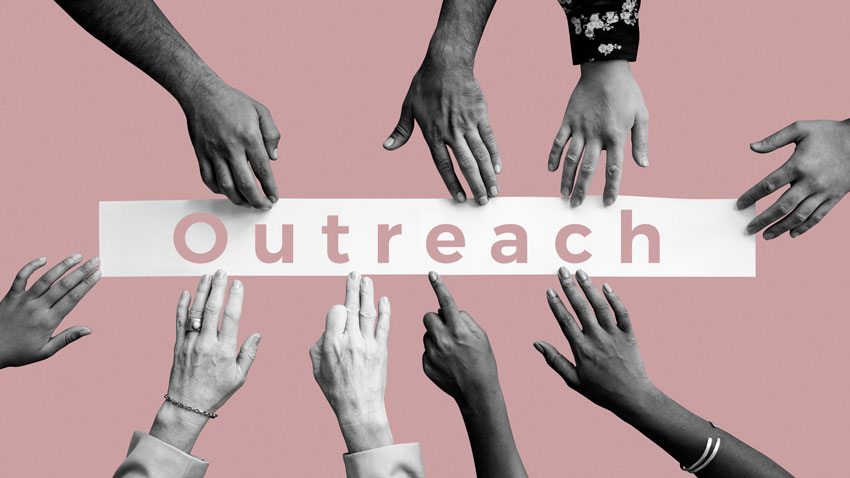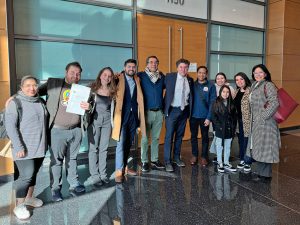Trying to reach out to new audiences and build community can feel a lot like entering your high school cafeteria as a new student.
You don’t know anyone – and no one knows you. There are so many people, already content with where they are. So how do you sit down, build relationships, and create community – without getting any weird stares?
Luckily – outreach for social change trainers and community educators is less stress-inducing than those teenage years.
So here are 5 practices you can take for effective outreach.

5 Steps for Effective Outreach
These 5 best practices for effective outreach are meant to guide you. Every organization is different – so you may need to spend more or less time on each section.
But if you’re not getting the partnerships you hoped for – start here.
1. Research
One of the most important first steps of any big project your organization takes on – research.
You want to educate yourself on who you’re reaching out to. Are you trying to partner with an already established group? Or trying to bring community members to your cause?
In either case – learn more about the people you want to connect with. See what moves them and how your relationship can be mutually beneficial.
2. Be Concise
When it comes time to reaching out – be short and to the point.
You’re busy, they’re busy, everyone’s busy.
So send them a concise message that respects them and their time. You’ll go a long way by simply being direct, but friendly.
3. What’s In it For Me?
Instead of focusing on who you are, try to highlight how you can support their goals and how your training benefits them.
Because every leader and social movement wants to make the world a better place. But going on and on about your history, background, and program areas doesn’t put the emphasis on the social change leader.
Try to quantify your impact in your outreach. For example, don’t say “we help people grow community gardens”. Instead,
We’ve given 317 communities like yours the tools and techniques to support neighborhood gardens through weekly workshops.
Your messaging is crystal clear because they know exactly what is in it for them – a neighborhood garden via supportive workshops. Even though you’re describing yourself, it’s in the perspective of what they need.
Make sure the rest of your outreach is talking about their goals, their needs, their accomplishments – and you have an enticing approach.
4. Clear Action
Ambiguity is one of the biggest reasons people don’t respond to your outreach messages.
Again – everybody wants to change the world. But how are you actually doing it?
In your outreach, be as specific as possible with your methods to break down that participation barrier. You’ll make it much easier for them to say “yes.”
5. Value
Outreach takes time – and a bit of persistence.
The truth is, most people won’t respond to your first email. (See: People Are Super Busy).
A great way to continue nurturing your potential relationships is by adding value. In other words, you’ll send them messages with some that is constructive and helpful to the relationship.
Instead of:
“Hi John,
Just wanted to follow up on my last message. Let me know if you’re interested!
Thanks again,
Miriam”
Try:
“Hi John,
I really enjoyed your latest LinkedIn post on climate change policy. It reminded me of this great article that talks about the benefits of some of your suggestions: {{article link}}.
In any case – let me know if you’d be interested in talking about a partnership! I’m free for a call on Tuesday morning.
Hope you’re doing well,
Miriam”

Go Get ‘Em
Effective outreach is hard work. And unfortunately – most people won’t ever respond to you.
But instead of treating it like a numbers game, try going for a value game. Create genuine value-driven outreach messages that speak to your community.
It might take more time, but you’ll find that you’ll have a better response from people who feel a sincere connection.
Have you used any of these methods before? Let me know which outreach method works for you!





